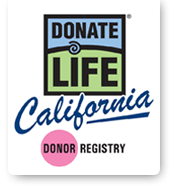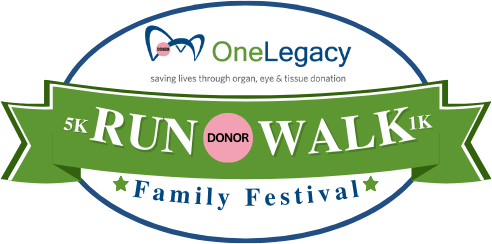It’s Pride Month! Let’s Talk About the HOPE Act!
June marks the celebration of Pride Month, where we honor LGBTQ history and commemorate this year’s 50th anniversary of the Stonewall riots.

The Stonewall Riots took place at the end of June 1969 when the NYPD raided the Stonewall Inn, a gay bar and tavern. Patrons and supporters of the inn resisted and started an uprising, which would serve as a turning point for the expansion of LGBTQ rights across the US.
While the fight still continues to this day, major strides have been made for LGBTQ rights. We are happy to say that advancements have been made in the world of organ and tissue donation as well, particularly with the passage of the HIV Organ Policy Equity (HOPE) Act in 2013.
What is the HOPE Act?
The HOPE Act was introduced by California Senator Barbara Boxer in 2013. It was passed by the U.S. Congress and signed into law by former President Barack Obama on November 21, 2013. The California State Legislature followed up with similar legislation in 2016 to bring state law in line with the HOPE Act.
The law began implementation in November 2015 to research transplantation of organs from HIV+ donors into HIV+ candidates for a transplant. The HOPE Act eventually enabled HIV+ persons to both receive and donate organs beginning in 2015.

Prior to the passage of the legislation, anyone who was HIV+ was unable to register themselves as an organ donor. This provides immense hope to those in need of a transplant and widens our potential donor pool so that more lives can be saved.
With the development of the HOPE Act, there is now officially no disqualifying conditions when signing up to be an organ donor. Age, illness, and disease do not prevent you from registering as an organ donor. For more information on donation, click here.
How the HOPE Act Has Saved Lives
The HOPE Act enables potential HIV+ donors to match with other HIV+ persons in need of a transplant. Because of the HOPE Act, 100 organs have been transplanted since 2015 and through 2018.

There are over thirty transplant hospital nationwide participating in the HIV+ transplant program. In California alone, we have two hospitals eligible to perform HIV+ transplants. Thanks to the HOPE Act and these transplant hospitals, we will continue to save lives in perpetuity.
For more information on the HOPE Act, visit the United Network for Organ Sharing’s (UNOS) website.








